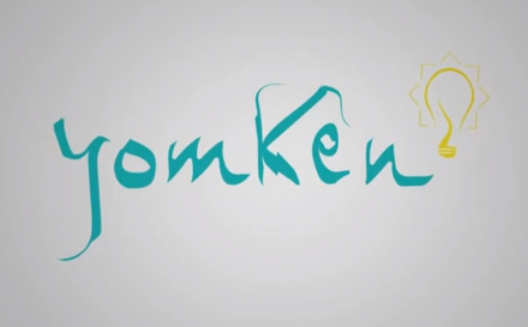Crowdfunding Platform Yomken Makes Launching Products Easy in Egypt

 While concern in Egypt rises over courting
investment and international partnerships intended to improve
Egypt’s economy, one initiative has broken away from the rest to
offer a localized funding option for small projects and
startups.
While concern in Egypt rises over courting
investment and international partnerships intended to improve
Egypt’s economy, one initiative has broken away from the rest to
offer a localized funding option for small projects and
startups.
Yomken is set to boost the Egyptian economy and improve local production by introducing, for the first time in Egypt, crowdfunding and open innovation under one platform.
In the beginning, 24-year-old Founder Tamer Taha considered focusing the startup’s efforts solely on financial and technical consultancy, monitoring the various business models across the globe. He realized, however, that the local ecosystem is ready for more than just consultancy.
He become inspired to join the ideas behind crowdfunding platform Indiegogo and open innovation initiative OpenIDEO, under one entrepreneurial project that would boast an Egyptian Arab identity. His startup now encourages small and medium-sized businesses to innovate as it links their technical needs to local creative talents.
Critically, the platform strives to find creative technical solutions that can help them go to market and offer competitive prices. Its focus areas include handicrafts, artisanal goods, and site materials for workshops.
The platform fills a gap within the market, says Taha; high-tech products represent less than 5% of Egypt’s exports, yet they receive the majority of the attention and funding opportunities. The bottom of the pyramid is being ignored, even though it consists of low- and medium-tech businesses that represent 60% of Egypt’s economy and are able to compete with low-priced imported goods.
Yet, says Taha, “if we pave the way for open innovation among artisans and manufacturing site owners, by spotting the challenges they face and sharing them with everyone on the Yomken platform, we will find the right ideas, and we will find the best talent to face those specific challenges.”
How It Works
On the site, users can post “challenges” and ideas for new innovations for free. Entrepreneurs or those with solutions can submit a product that will then solve the challenge, paying a small fee to register. Similar to Kickstarter or even Kiva’s interface, the necessary amount of funding is featured on Yomken and, when solutions are fully funded, the resulting products are also placed on Yomken’s platform for sale.
To ensure that a product is delivered, Yomken finances the challenge temporarily until the crowdfunding phase is complete, placing faith in these businesses before users do – a very different model than Kickstarter. Before the project is fully crowdfunded, users can place an advance order for the products. This is a risk that the company is willing to absorb should solutions go unfunded by contributors.

Should you personally try Yomken, you will notice a high level of transparency - any contributor funding one of the solutions can follow up on his contribution and know where it’s going. In the event that the target funding amount is not collected, contributors retrieve their initial funding amount.
According to Taha, contributors can be university students, researchers, specialists, or even companies that perceive potential benefits or partnership. It is no wonder that the website creates a competitive environment amongst contributors in order to come up with the best solution!
Next Steps
Until now, apart from a Youth Innovative Fund financial contribution in 2011, Yomken is funded by the team itself. It also won the Social Impact Finance competition organized by the Saudi-Spanish Center for Islamic Economics and Finance. Mesaha Foundation for social development also empowered the Yomken team during a volunteers training phase.
Yomken intends to develop partnerships in the future, expanding from Egypt to the whole region, while preserving the concept of “Arab Handicrafts.” In the end, the team’s focal point is not funding, as much as it is the idea’s sustainability. Tamer asserts, “It’s said that innovation in Egypt is technology-driven, and it is innovation that the market demands. Egypt and the Arab world will not be able to compete with the international market unless more attention is given to market needs and to fulfilling them thanks to local creativity and innovation.”
Watch the following video to discover more about Yomken:


